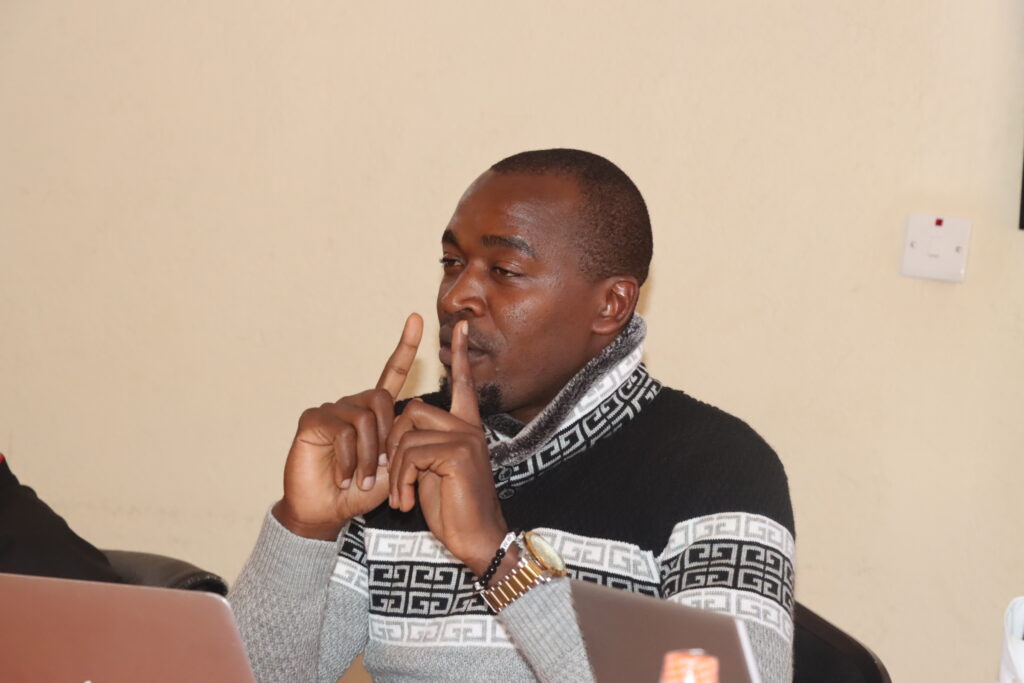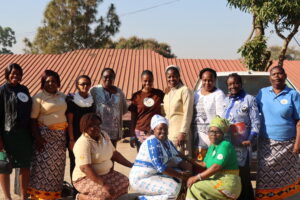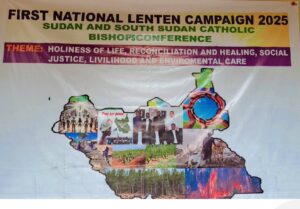AMECEA: Lay Leadership Trained on New Innovative Approaches to SCCs

Mr. Alloys Nyakundi
Sr. Henriette Anne, FSSA
Small Christian Communities (SCCs) provide a platform for believers to come together, share their faith journeys, and reflect on scriptures in a communal and prayerful manner.
At the workshop of lay leadership in the Association of Member Episcopal Conferences in Eastern Africa (AMECEA) region aimed at promoting and animating SCCs among the Laity, Mr. Alloys Mogere Nyakundi enlightened participants on the method of Bible reflection adopted by Lumko Institute in South Africa which aims to create a communal and prayerful engagement with Sacred Scriptures and the diverse models of SCCs for different contexts.
At the two-day workshop, Mr. Nyukundi who is in charge of the SCCs for young people in the AMECEA region, explored nine different steps of Lumko method that help in “facilitating an encounter with God and one another and open eyes to the presence and work of God in everyday life”.
The steps he said, include “inviting the Lord, reading the text, picking out any words and meditating on them, letting God speak in silence, members of SCC share what they have heard from their hearts, discussing any task that the group is called to do, praying spontaneously, sharing any take-home message from each member, and finally having closing prayer and final blessing.”
In his address to over 25 participants at the Episcopal Conference of Malawi’s Secretariat, Mr. Nyukundi highlighted the importance of each step, saying that the session commences by inviting the presence of Jesus Christ, often marked by a song and an opening prayer. A moment of silence follows, during which the Holy Spirit is invoked to infuse the gathering with guidance and inspiration, after which participants share personal highlights and challenges experienced over the week, fostering a sense of community openness.

He further narrated that one member undertakes the reading, probably a Gospel passage, followed by another member offering a second reading, in a different version or language. the group identifies particular words or short phrases that resonate with them. These chosen excerpts are read aloud in a prayerful manner, with moments of silence between each reading.
He continued and told the participants that after the silence the group could share their reflections on how scripture speaks to them individually stressing that, the SCCs meeting is not a platform for preaching or teaching. After the sharing, the group can discuss the different tasks they have which may include discussion about the SCC’s social support activities among others and finally closing with a word of prayer.
He also shared the different models of SCCs that participants can use in different contexts including; Parish-based SCCs: which involves, Weekly gatherings directly connected to a parish, reflecting on the upcoming Sunday Gospel. Meetings can be in-person or virtual.
The Institutional-based SCCs: Thus, SCCs within educational institutions like universities, involving students and educators.
Online/Virtual-based SCCs: Meetings held online to discuss the upcoming Sunday Gospel. Participants can join from different locations. Hybrid SCCs: Combining in-person and online meetings, fostering flexibility and inclusivity and Specialized SCCs: Tailored to specific professional groups, uniting individuals from similar fields for spiritual growth.


